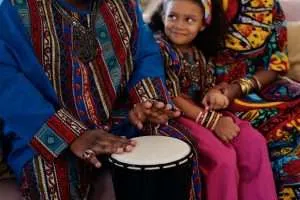“It’s good that you have travelled so much already.”
“If you keep working so much, how will you manage?”
These are a handful of the comments that I have been hearing since it became known to people around me that I was going to get married. Some of these comments are made in jest, some in genuine concern and others simply as part of mundane conversations. But what these made me do is think about the idea of marriage itself – what it means and entails – for a ‘career woman’ like me. As we already know, the topic of marriage is omnipresent in a woman’s, especially an Indian woman’s life since adulthood. Many relatives have playfully ‘teased’ me about attaining the ‘eligibility’ to be married since the age of puberty. As the first time one menstruates is a celebratory ritual in Assam, it is also the time when young girls are subjected to playful comments about them ‘growing up’. But unlike many other girls, I had my parents’ support in ignoring them. But the ‘importance’ of marriage was already planted in my mind.
When I was ready to move to Delhi for my higher education, one of my relatives asked me to not choose a groom outside my community. So even when I was planning my life and taking a leap of faith forward, marriage loomed large over my head. Even close friends have been quick to jump to the conclusion that I must be getting married when I have told them that ‘I have some good news to share’. These are not new observations by any means. The pressure to get married on Indian girls and women is well-documented. But what I am observing now merits some comments.
I am no longer the 14 or 18-year-old girl who is teased about attaining an eligible age for marriage. For many, that age has long been attained. In places like banks, police stations and government offices, the assumption is that I am already married. I have also been asked at conferences (where I have been invited as a speaker) about my marital status.
Instead, there are doubts about my ‘marital skills’ because of me being a ‘career woman’ and a ‘busy person’ who also travels quite a lot. In the past few years, admittedly, I have been working a lot as most early career academics do. The work has also entailed a fair amount of travel and I have thoroughly enjoyed most of it. But because I have been a single woman, the work and travel have not been scrutinized from a marital lens. However, after the information about my marriage became public, several people asked me how I would manage to create a work-life balance. There have been suggestions to cut down on travel, foreign visits, etc. Some have also asked if I will be able to make my own decisions post-marriage.
What is interesting is that I have been living independently since I went to Delhi in 2009. After living in hostels for a long time, I have been living on my own since 2020. In this period, I have submitted my PhD thesis, changed jobs and shifted cities – mostly on my own. I have also managed household chores and taken care of family responsibilities. But the question of managing work-life balance never became important then. Therefore, it made me wonder what is it about getting married that raises this question. I also wonder if men of my age are even asked this question.
The answer is quite simple – marriage is seen as a rite of passage that marks the end of one’s personhood. This is especially true if one is a woman. One can say that there is more acceptance of the fact that many women now work outside their homes. But there is still an expectation that they will also do household chores. Hence, the repeated questions about maintaining a ‘right’ balance between work and life. Debates on housework and its association with women are not new. They have been an important part of feminist critiques of the family and gendered division of work (Hartmann 1981; Hochschild and Machung 1989). But even today, Indian women carry an unfair burden of housework, especially married women (Ali et al 2024). While higher education is a factor that reduces the time spent on housework, it is still higher compared to women in other countries. What, however, is striking is that the men are significantly missing from this conversation. Since there is no expectation that they would be doing household chores, there is also no question about maintaining a ‘work-life’ balance.
As long as marriage is shrouded with these expectations and pressures, it cannot be an institution based on equity and partnership.
I had earlier written about the portrayal of love, marriage and gendered roles on Instagram reels. What these reels on love and arranged marriages do is reinforce the notion that marriages that involve parental choice are better. Love is seen as a threat. This is especially truer for men because they get to marry women who are gender confirmative through arranged marriages. Many matrimonial advertisements also reiterate this point. Grooms and their families explicitly mention that they are looking for ‘non-feminist brides.’ The ‘non-feminist brides’ know and willingly do household chores like cooking and cleaning. They are not the career and travelling kind and will face no problem in maintaining the right balance between work and home.
Such ideas and expectations only reassert the fact that marriage is a patriarchal institution. It creates unnecessary pressure on women and also leads them to question their selfhood, independence and career goals. As long as marriage is shrouded with these expectations and pressures, it cannot be an institution based on equity and partnership.
References:
- Ali, Balhasan, Aditi Prasad, Preeti Dhillon and Shaban Abdul. (2024). Sustaining the Tradition in Multigeneration Families: Women’s Time Use and Unpaid Domestic Work in India. Journal of Family and Economic Issues.
- Hartmann, Heidi. (1981). The Family as the Locus of Gender, Class, and Political Struggle: The Example of Housework. Signs: Journal of Women in Culture and Society. 6(3).
- Hochschild, A. R. and Anne Machung. (1989). The Second Shift: Working Parents and the Revolution at Home. Viking.







